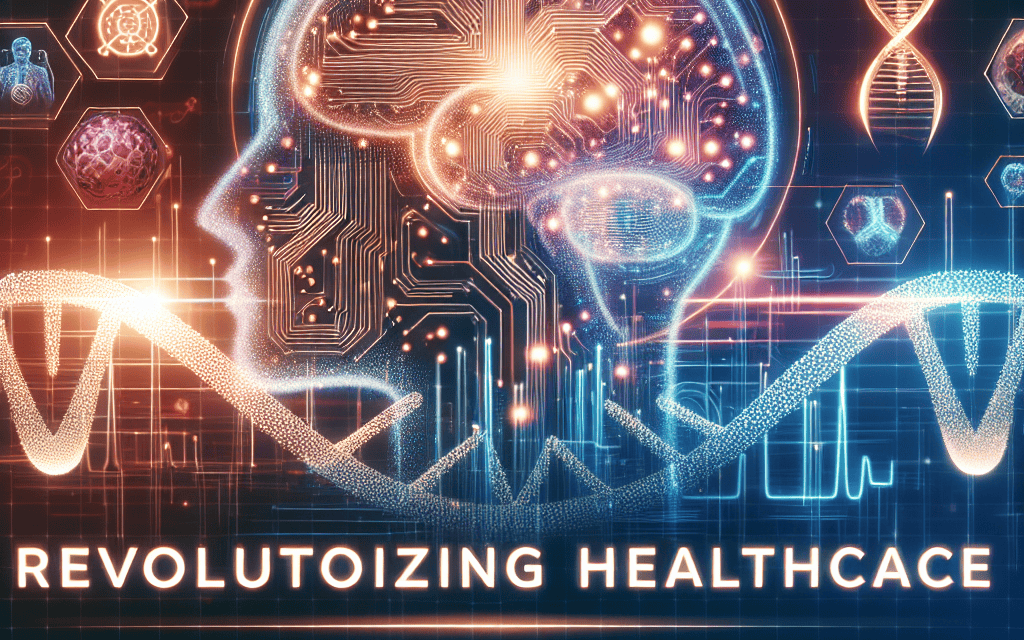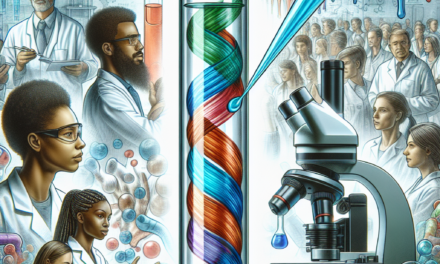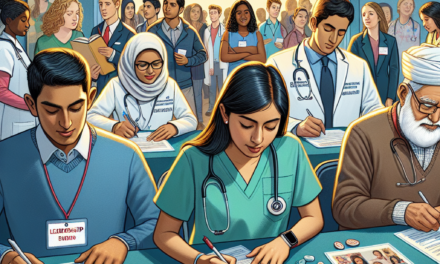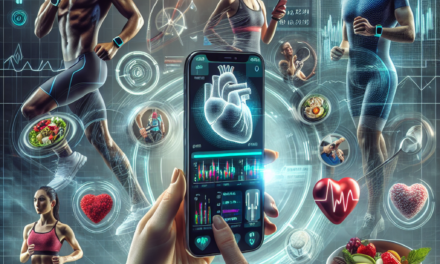Revolutionizing Healthcare: The Impact of GenAI and Precision Medicine by 2025
The healthcare landscape is undergoing a seismic shift, driven by advancements in technology and a deeper understanding of human biology. By 2025, the integration of Generative Artificial Intelligence (GenAI) and precision medicine is set to revolutionize how we approach healthcare, diagnosis, treatment, and patient care. This article explores the multifaceted impact of these innovations, examining their implications for healthcare providers, patients, and the broader medical community.
1. Understanding GenAI and Its Role in Healthcare
Generative Artificial Intelligence (GenAI) refers to a subset of artificial intelligence that can generate new content, including text, images, and even complex data models. In healthcare, GenAI is poised to play a transformative role in various domains, from drug discovery to personalized treatment plans.
1.1 The Mechanisms of GenAI
GenAI operates through advanced algorithms and machine learning techniques, enabling it to analyze vast datasets and generate insights that would be impossible for humans to achieve alone. Key mechanisms include:
- Natural Language Processing (NLP): This allows GenAI to understand and generate human language, facilitating better communication between patients and healthcare providers.
- Deep Learning: By mimicking the human brain’s neural networks, deep learning algorithms can identify patterns in complex datasets, such as genomic information.
- Generative Adversarial Networks (GANs): These networks can create new data samples that resemble existing data, useful in drug discovery and medical imaging.
1.2 Applications of GenAI in Healthcare
GenAI’s applications in healthcare are vast and varied. Some notable examples include:
- Drug Discovery: GenAI can analyze chemical compounds and predict their efficacy, significantly reducing the time and cost associated with bringing new drugs to market.
- Personalized Treatment Plans: By analyzing patient data, GenAI can help create tailored treatment plans that consider individual genetic profiles and health histories.
- Medical Imaging: GenAI can enhance imaging techniques, improving the accuracy of diagnoses in fields such as radiology and pathology.
1.3 Case Studies: GenAI in Action
Several organizations are already leveraging GenAI to improve healthcare outcomes. For instance:
- Insilico Medicine: This biotech company uses GenAI to accelerate drug discovery, having successfully identified potential drug candidates for diseases like fibrosis and cancer.
- PathAI: This startup employs GenAI to enhance pathology diagnostics, achieving higher accuracy rates in identifying cancerous tissues compared to traditional methods.
1.4 Challenges and Ethical Considerations
Despite its potential, the integration of GenAI in healthcare raises several challenges:
- Data Privacy: The use of sensitive patient data necessitates stringent privacy measures to protect individuals’ rights.
- Bias in Algorithms: If the data used to train GenAI models is biased, it can lead to skewed results and inequitable healthcare outcomes.
- Regulatory Hurdles: The rapid pace of technological advancement often outstrips existing regulatory frameworks, creating uncertainty in implementation.
1.5 The Future of GenAI in Healthcare
As we approach 2025, the role of GenAI in healthcare is expected to expand significantly. Innovations in machine learning and data analytics will likely lead to more accurate diagnostics, improved patient outcomes, and a more efficient healthcare system overall.
2. Precision Medicine: A New Paradigm in Healthcare
Precision medicine represents a shift from a one-size-fits-all approach to a more individualized strategy that considers the unique genetic, environmental, and lifestyle factors of each patient. This approach is increasingly being integrated with GenAI to enhance its effectiveness.
2.1 The Foundations of Precision Medicine
Precision medicine is built on the understanding that each patient is unique. Key components include:
- Genomic Sequencing: Advances in sequencing technologies allow for the detailed analysis of an individual’s genome, identifying genetic predispositions to diseases.
- Biomarkers: These biological indicators can help predict disease risk and treatment response, guiding personalized treatment strategies.
- Patient-Centric Care: Precision medicine emphasizes the importance of patient involvement in their healthcare decisions, fostering a collaborative approach.
2.2 The Role of GenAI in Precision Medicine
GenAI enhances precision medicine by providing tools for data analysis and interpretation. For example:
- Data Integration: GenAI can synthesize data from various sources, including genomic data, electronic health records, and clinical trials, to create comprehensive patient profiles.
- Predictive Analytics: By analyzing historical data, GenAI can predict how patients will respond to specific treatments, allowing for more informed decision-making.
- Clinical Trial Optimization: GenAI can identify suitable candidates for clinical trials based on genetic profiles, improving the efficiency of drug development.
2.3 Case Studies: Precision Medicine in Practice
Several healthcare institutions are successfully implementing precision medicine strategies:
- Memorial Sloan Kettering Cancer Center: This institution uses genomic profiling to tailor cancer treatments, resulting in improved patient outcomes.
- 23andMe: This consumer genetics company provides individuals with insights into their genetic predispositions, empowering them to make informed health decisions.
2.4 Challenges in Implementing Precision Medicine
While precision medicine holds great promise, several challenges remain:
- Cost and Accessibility: The high cost of genomic testing and personalized treatments can limit access for many patients.
- Data Management: The vast amounts of data generated require robust systems for storage, analysis, and security.
- Ethical Concerns: Issues related to genetic privacy and the potential for discrimination based on genetic information must be addressed.
2.5 The Future of Precision Medicine
By 2025, precision medicine is expected to become more mainstream, with advancements in technology making it more accessible and affordable. The integration of GenAI will further enhance its capabilities, leading to more effective and personalized healthcare solutions.
3. Enhancing Diagnostics with GenAI and Precision Medicine
Accurate diagnostics are crucial for effective treatment. The combination of GenAI and precision medicine is set to enhance diagnostic capabilities significantly.
3.1 The Importance of Accurate Diagnostics
Accurate diagnostics are essential for:
- Timely Treatment: Early and accurate diagnosis can lead to timely interventions, improving patient outcomes.
- Cost-Effectiveness: Accurate diagnostics can reduce unnecessary tests and treatments, lowering overall healthcare costs.
- Patient Satisfaction: Patients are more likely to trust and engage with healthcare providers who offer accurate and timely diagnoses.
3.2 GenAI’s Role in Diagnostic Imaging
GenAI is transforming diagnostic imaging through:
- Image Analysis: GenAI algorithms can analyze medical images with high accuracy, identifying abnormalities that may be missed by human eyes.
- Automated Reporting: GenAI can generate reports based on image analysis, streamlining the diagnostic process for radiologists.
- Integration with Electronic Health Records: GenAI can correlate imaging results with patient history, providing a more comprehensive view of the patient’s health.
3.3 Case Studies: GenAI in Diagnostic Imaging
Several organizations are leveraging GenAI to enhance diagnostic imaging:
- Google Health: Their AI algorithms have demonstrated superior accuracy in detecting breast cancer in mammograms compared to human radiologists.
- IBM Watson Health: Watson’s AI capabilities are being used to analyze medical images and assist radiologists in making more accurate diagnoses.
3.4 Challenges in Diagnostic Implementation
Despite the advancements, challenges remain in implementing GenAI in diagnostics:
- Integration with Existing Systems: Many healthcare facilities struggle to integrate new AI technologies with legacy systems.
- Training and Education: Healthcare professionals need training to effectively use AI tools in their diagnostic processes.
- Regulatory Approval: Gaining regulatory approval for AI-based diagnostic tools can be a lengthy and complex process.
3.5 The Future of Diagnostics with GenAI and Precision Medicine
By 2025, the integration of GenAI and precision medicine is expected to lead to more accurate and efficient diagnostic processes. As technology continues to evolve, healthcare providers will be better equipped to identify diseases early and tailor treatments to individual patients.
4. Transforming Patient Care through GenAI and Precision Medicine
The integration of GenAI and precision medicine is not only enhancing diagnostics and treatment but also transforming the overall patient care experience.
4.1 Patient Engagement and Empowerment
GenAI and precision medicine are fostering greater patient engagement through:
- Personalized Health Information: Patients can receive tailored health information based on their genetic profiles and health histories.
- Decision Support Tools: GenAI can provide patients with decision support tools that help them understand their treatment options and make informed choices.
- Remote Monitoring: Wearable devices and mobile apps powered by GenAI can monitor patients’ health in real-time, allowing for proactive interventions.
4.2 Enhancing Communication Between Patients and Providers
Effective communication is vital for successful patient care. GenAI can enhance communication through:
- Chatbots and Virtual Assistants: These tools can provide patients with immediate answers to their questions, improving access to information.
- Telemedicine: GenAI can facilitate telemedicine consultations, allowing patients to receive care from the comfort of their homes.
- Language Translation: GenAI can help bridge language barriers, ensuring that non-native speakers receive accurate information about their health.
4.3 Case Studies: Transforming Patient Care
Several organizations are successfully transforming patient care through GenAI and precision medicine:
- Babylon Health: This digital health service uses AI to provide patients with personalized health assessments and advice.
- Flatiron Health: By integrating real-world data with precision medicine, Flatiron is improving cancer care and patient outcomes.
4.4 Challenges in Patient Care Transformation
While the potential for transformation is significant, challenges remain:
- Digital Divide: Not all patients have equal access to technology, which can exacerbate health disparities.
- Data Security: Protecting patient data in an increasingly digital healthcare landscape is paramount.
- Resistance to Change: Some healthcare providers may be hesitant to adopt new technologies, preferring traditional methods.
4.5 The Future of Patient Care with GenAI and Precision Medicine
By 2025, the patient care experience is expected to be more personalized, efficient, and accessible. The integration of GenAI and precision medicine will empower patients to take an active role in their healthcare, leading to better outcomes and satisfaction.
5. The Economic Impact of GenAI and Precision Medicine on Healthcare
The economic implications of integrating GenAI and precision medicine into healthcare are profound, affecting everything from operational costs to patient outcomes.
5.1 Cost Savings through Efficiency
One of the most significant economic benefits of GenAI and precision medicine is the potential for cost savings:
- Reduced Drug Development Costs: GenAI can streamline the drug discovery process, significantly lowering the costs associated with bringing new medications to market.
- Decreased Hospital Readmissions: Personalized treatment plans can lead to better patient outcomes, reducing the likelihood of costly readmissions.
- Optimized Resource Allocation: GenAI can help healthcare providers allocate resources more effectively, ensuring that care is delivered where it is needed most.
5.2 Economic Growth through Innovation
The integration of GenAI and precision medicine is expected to drive economic growth in several ways:
- Job Creation: As the demand for AI and precision medicine expertise grows, new job opportunities will emerge in healthcare and technology sectors.
- Investment in Biotech: Increased investment in biotech companies focused on GenAI and precision medicine will stimulate innovation and economic development.
- Global Competitiveness: Countries that lead in healthcare innovation will enhance their global competitiveness, attracting talent and investment.
5.3 Case Studies: Economic Impact in Action
Several organizations are already experiencing economic benefits from integrating GenAI and precision medicine:
- Novartis: By utilizing AI in drug discovery, Novartis has reduced the time to market for new drugs, resulting in significant cost savings.
- Flatiron Health: Their real-world data analytics platform has improved cancer care efficiency, leading to better patient outcomes and reduced costs.
5.4 Challenges to Economic Integration
Despite the potential economic benefits, challenges remain:
- High Initial Investment: The upfront costs of implementing GenAI and precision medicine technologies can be a barrier for many healthcare organizations.
- Regulatory Compliance: Navigating the complex regulatory landscape can be time-consuming and costly for healthcare providers.
- Market Adoption: Encouraging widespread adoption of new technologies among healthcare providers and patients is essential for realizing economic benefits.
5.5 The Future Economic Landscape of Healthcare
By 2025, the economic landscape of healthcare is expected to be significantly transformed by the integration of GenAI and precision medicine. As these technologies become more mainstream, they will drive cost savings, innovation, and improved patient outcomes, ultimately benefiting the entire healthcare ecosystem.
Conclusion
The integration of Generative Artificial Intelligence and precision medicine is set to revolutionize healthcare by 2025. From enhancing diagnostics and personalizing treatment plans to transforming patient care and driving economic growth, the impact of these innovations is profound. However, challenges such as data privacy, regulatory hurdles, and the need for equitable access must be addressed to fully realize their potential.
As we move forward, collaboration among healthcare providers, technology companies, and policymakers will be essential to navigate these challenges and ensure that the benefits of GenAI and precision medicine are accessible to all. The future of healthcare is bright, and with continued innovation and commitment, we can create a system that is more efficient, effective, and patient-centered.





